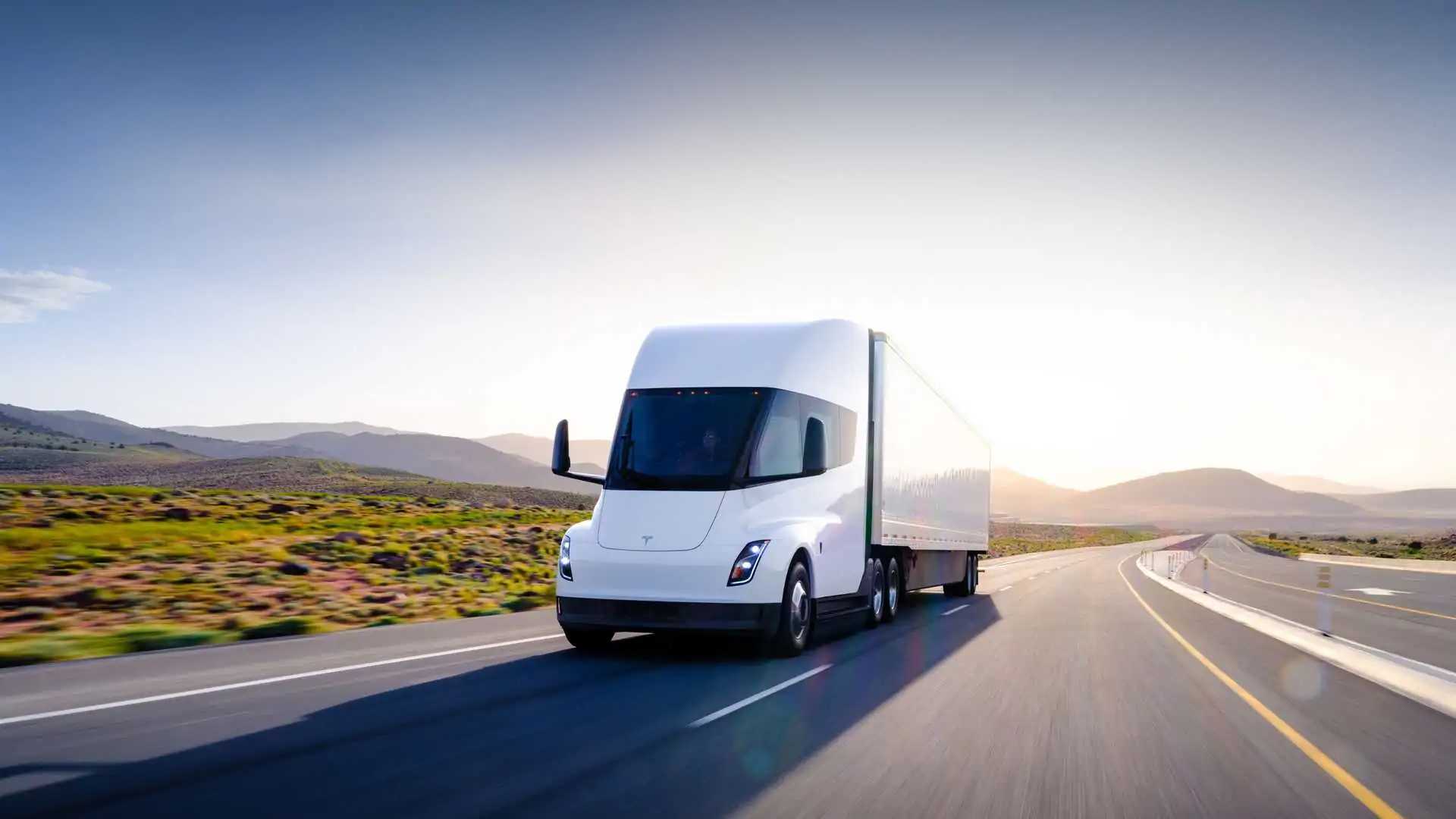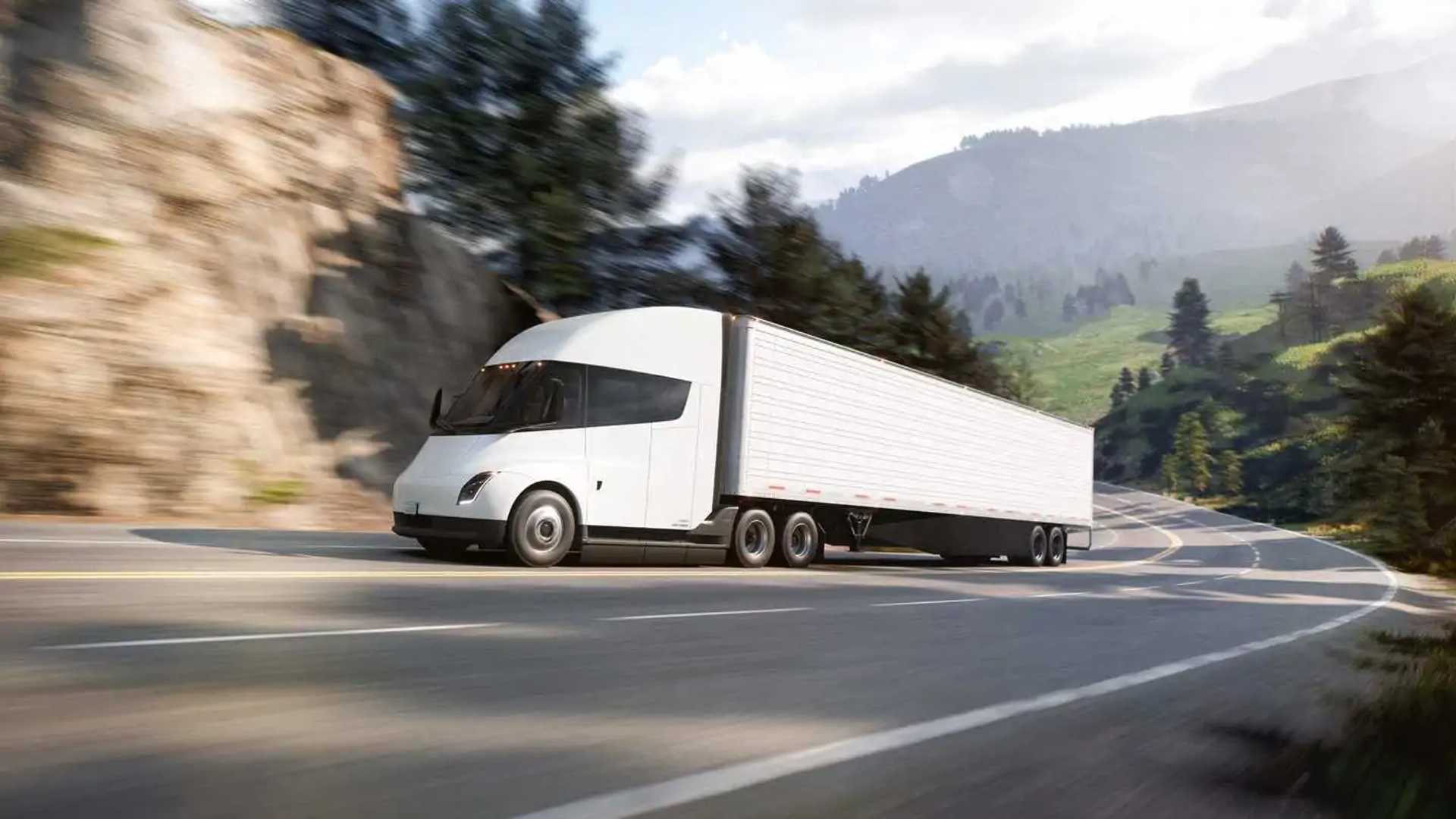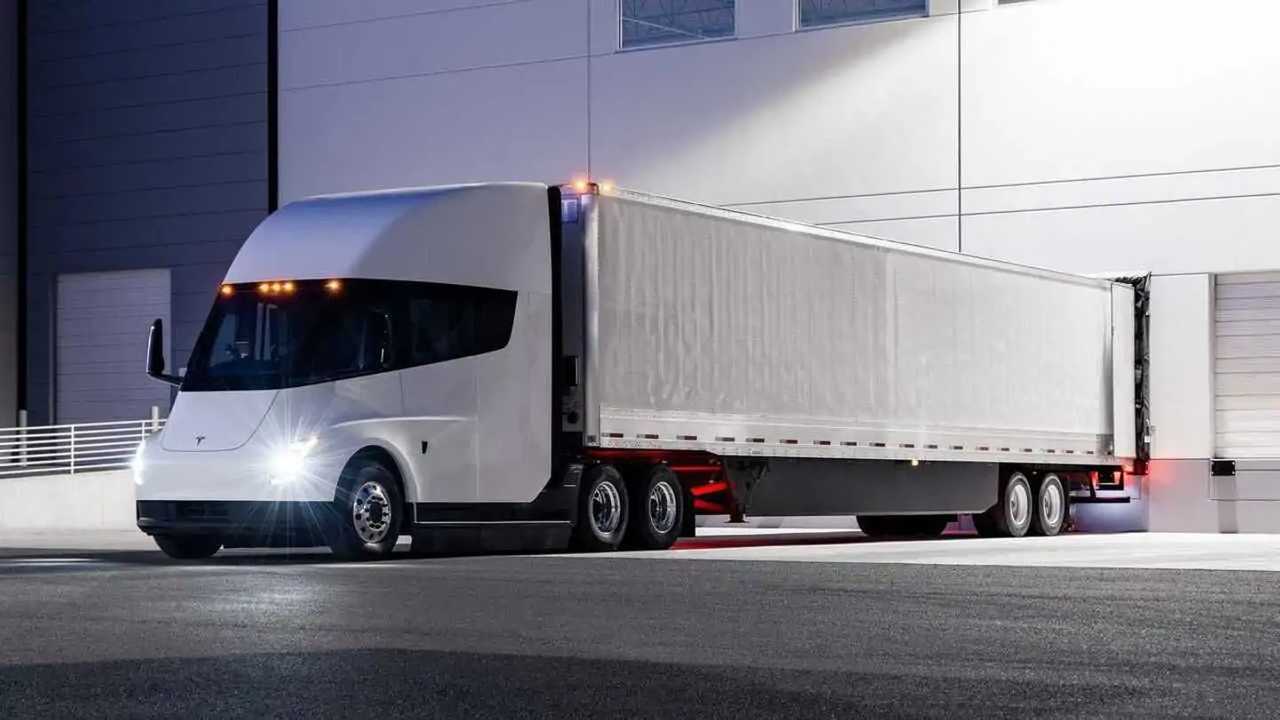Since its initial reveal in 2017, the Tesla Semi has remained elusive. The long haul truck was initially slated for production in 2019, but has been plagued by delays. The first trickle of deliveries finally began in December 2022, but between then and Q1 2024, less than 150 units were produced.
Most production has gone directly to Tesla’s company fleet. PepsiCo is the only Semi customer to actually take delivery, although only 34 of the 100 orders placed by PepsiCo have been fulfilled so far.
So last month, Tesla took the stage at the 2024 Advanced Clean Transportation Expo (ACT) in Las Vegas to assure the world that the Semi is still on track, even if progress is moving more slowly than expected. Senior Manager Dan Priestley says Tesla is committed to the electrification of the trucking industry, stating that they “look forward to bringing our experience with EVs and supporting infrastructure to tackle electric heavy trucking at scale.”
At the event, Priestley also announced that an additional 50 Semis would soon join PepsiCo’s fleet. This news follows reports that big box retailers Costco and Walmart have also launched pilot programs.
Of course, this is just a preamble to the automaker’s future ambitions. Last year, the company announced a $3.6 billion factory to support Tesla Semi production in Nevada. Construction of the facility began in January of this year. Mr. Priestley says Tesla is aiming for volume production in 2026, eventually producing as many as 50,000 units a year.
Hands-on and test-ride experiences were also available at the show. Kyle from the YouTube channel Out of Spec Reviews got to experience the Semi up close for the first time. While his presentation is light on technical details, it provides a good overview of the truck’s features and capabilities.
One of the first things Kyle showcases is the storage area located behind the main cabin. This is accessed via an exterior hatch situated just behind the main cabin door. While the Tesla Semi has a lot of space in the cabin, there is a lack of dedicated storage. So, this storage solution will certainly come in handy for drivers.
We also get a quick look at the Semi’s Megawatt Charging System (MCS) port. The MCS charging standard can transfer a whopping 3.75 megawatts of power to large electric vehicles like the Semi. While early units of the Semi feature an MCS v.2 plug, future production will employ the newer v.3 design.
The unusual center seating position remains the interior’s most standout feature. The rest of the styling, displays, and user interface will be familiar to anyone who has driven a Tesla. One interesting tidbit is that over the past 1,800 miles, this particular truck’s efficiency has been 1.7 kWh / mile. Although it is unknown whether these miles were tallied while hauling freight, the numbers are in line with what Tesla promised for the vehicle when carrying cargo.
While Out of Spec was able to spend time riding shotgun in the Semi, they couldn’t film the experience. Thankfully, Andre from the TFL was allowed to record his ride-along.
After one of Tesla’s engineers takes the wheel of the Semi, Andre is given a rundown of the truck and its capabilities. Currently, the long-range model is still the only version to enter production. Sporting a massive battery pack estimated at 850 – 900 kWh, the Semi has a tri-motor configuration and over 1,000 hp.
A single motor “efficiency drive” axle is located in the rear and operates at all times. A dual-motor “torque-drive” axle is located in front and provides most of the truck’s power under heavy load. This front axle is utilized only when necessary, sitting dormant whenever possible to improve efficiency.
Since Andre has his own commercial driver’s license, he immediately notes the calm and quiet cabin experience compared to a traditional diesel engine. The cabin is also free of the creaks and rattles you often find in ICE truck platforms converted to hybrid or electric drive. The familiar Tesla user interface is also appreciated, as is the truck’s large, easy-to-access door located on the back side of the cab.
“I got to say, it seems very refined.” Andre says. “Very nice as far as how the cab is built, the accessibility of it, the capability of it.” While he may not have been behind the wheel, he was impressed with the Semi’s ride, range, and charging capabilities.
Still, he notes that the limited availability of megawatt charging holds back its current potential. “I would say for shorter trips, it’s hard to beat. For cross-country trips, it’s a different story.”
With missed production goals and slow deliveries, there is no doubt that the Semi has had a rough launch. But it is good to see progress on the Nevada production facility and a new batch of trucks on their way to customers.
Do you think Tesla will finally hit volume production in 2026 as planned? Or are we looking at another false start? Let us know your thoughts in the comments below.
Gallery: Tesla Semi new photos








Tesla, the electric vehicle and clean energy company founded by Elon Musk, unveiled its highly anticipated Tesla Semi truck at the Advanced Clean Transportation (ACT) Expo in Long Beach, California. The event, which took place on May 7th, 2021, provided attendees with an up-close look at the groundbreaking vehicle and offered insights into its production timeline.
The Tesla Semi, originally announced by Musk in 2017, has been hailed as a game-changer in the trucking industry. With its sleek design, impressive range, and unparalleled performance, the Semi promises to revolutionize the way goods are transported across the country. Equipped with four independent motors, the Semi can accelerate from 0 to 60 mph in just 20 seconds, even when carrying a full load. Additionally, the Semi boasts a range of up to 500 miles on a single charge, making it a viable option for long-haul trucking operations.
At the ACT Expo, Tesla provided attendees with the opportunity to tour the Semi and see its innovative features up close. From its aerodynamic design to its advanced driver-assist technology, the Semi left a lasting impression on all who were in attendance. In addition to showcasing the vehicle, Tesla also announced its production timeline for the Semi. According to Musk, production is expected to ramp up in 2023, with deliveries starting shortly thereafter.
The announcement of the Tesla Semi’s production timeline has generated excitement within the trucking industry and among environmental advocates. With its zero-emission capabilities and cutting-edge technology, the Semi has the potential to significantly reduce greenhouse gas emissions and improve air quality. This, combined with its high performance and low operating costs, makes the Semi an attractive option for fleets looking to transition to cleaner transportation solutions.
Overall, the Tesla Semi’s debut at the ACT Expo marks a significant milestone in the evolution of the trucking industry. With its impressive capabilities and innovative design, the Semi promises to set a new standard for heavy-duty electric vehicles. As production ramps up in the coming years, it will be exciting to see how the Tesla Semi transforms the way goods are transported and paves the way for a more sustainable future.

